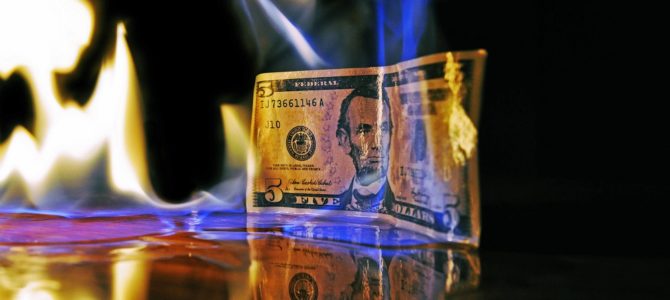
Congress seems to have gotten its act together to do something about the unfolding economic damage caused by the coronavirus pandemic. The fresh $2 trillion spending package has been a political hit after initial wrangling, with the Senate passing it unanimously and the House passed it this afternoon. Unfortunately the largest spending package in American history is ample with corporate handouts, opening a potential minefield of corporate irresponsibility.
The next several months are fraught with peril, even beyond what is happening on Wall Street and Main Street. Administering a stimulus more than double the size of Barack Obama’s 2009 legislation will require government intervention on a scale unseen since the Second World War.
Through this package, the federal government set itself up, by definition, to pick winners and losers in what should be a free economy. The emergency legislation and its rollout set a powerful precedent that will be used by future leaders as a model for eventual crises. We have a special responsibility to ensure that $2 trillion is overseen properly.
The stimulus is packed with special-interest handouts. However, the meat of the 880-page bill has to do with a wide mandate to aid industries affected by the crisis, giving large corporations special privileges that small employers could not dream of. This includes $25 billion in grants and an additional $25 billion in loans for the airline industry.
Cruise lines almost received a lifeline of their own, before Congress realized that all but one company flag their ships outside of the United States to avoid tax liability. Other major freebies include $17 billion for aircraft construction, likely for Boeing, and $15 billion for a wide range of hotels, restaurants, and more. Altogether, there are $850 billion in loans available through the Treasury and Small Business Administration, many of which will be given at below-market rates and may be canceled in certain circumstances.
Included in the bill is a provision that many of the receiving businesses, principally those with fewer than 500 workers, will not need to pay back their loans if they keep employees on the payroll. There is also a clause that laid-off employees are eligible for $600 per week in additional unemployment insurance.
These two aspects may incentivize companies to reduce hours, understanding that the bill may forgive their emergency loans, or to lay off workers to take the higher UI amount. Either way, the average worker will likely be negatively affected.
Furthermore, the $454 billion in funding for the Federal Reserve will be used to provide up to $4.5 trillion in leveraged loans, which will likely be most used by large companies. This will require the national bank, which normally operates with little congressional oversight, to choose which businesses are a worthwhile investment.
A notoriously slow and inefficient bureaucracy cannot hope to fairly judge the business prospects of companies in a manner that large banks do. The probable result is that large corporations will have an opportunity to borrow trillions in discount loans—loans that may, like their small business counterparts, be eventually forgiven once the immediate attention has passed.
The bill has created strange bedfellows in Congress, with the socialist and libertarian caucuses banded together by concern that our tax dollars will go into the hands of corporate leaders and not just average workers receiving relief checks. There are provisions in the existing bill to prevent stock buybacks and freeze executive pay among companies that take the bailout funds, but these likely will not provide enough oversight.
While government intervention is almost always a net negative for the economy, if taxpayers are going to spend $2 trillion they should receive the benefits and transparency of private-sector investors—a full accounting of the use of each dime. Here is the paradox that allows both for the sensible limitation of CEO pay and a precedent for future bills to dictate to companies what their bottom line will be in order to receive government bailouts.
Some aspects of this congressional colossus adhere to free market principle, some are justifiable under a national emergency, while the majority of dollars spent should give opponents of crony capitalism—on the left and right—pause. For every fiscal conservative who railed against the 2009 stimulus, will there be the same passion to ensure that government will not still be picking winners and losers a year from now? Or will it be hand-waved away because a Republican is in the White House?
An intervention into 8 percent of the national economy is a once-in-a-generation event. The long-lasting effects of such a rapid, throw-it-at-the-wall-and-see-what-sticks bill out of Congress will set a new paradigm every time a disaster occurs. Of past congressional and Federal Reserve behavior is any indication, these actions will ultimately mean billions more in profit for large corporations long after we’ve cashed our $1,200 checks.







